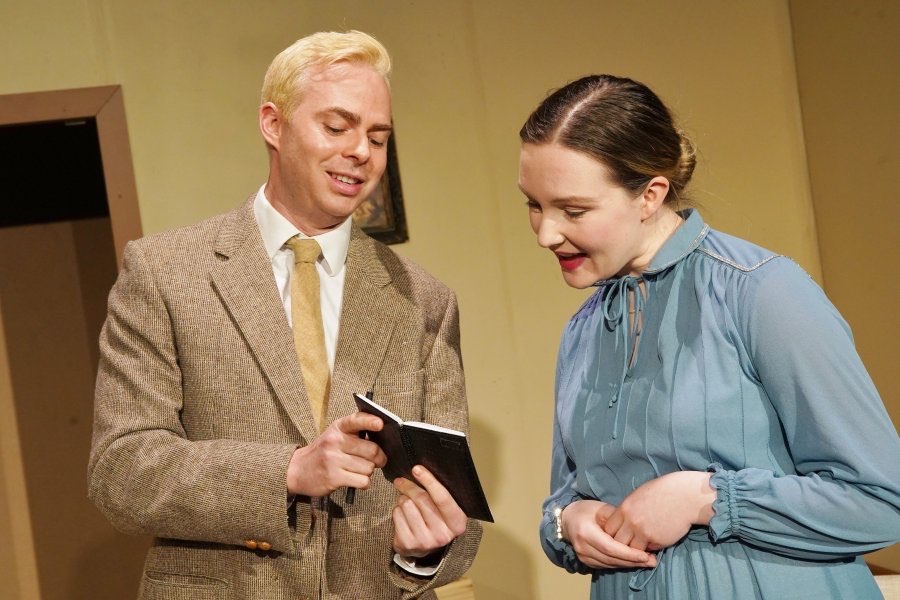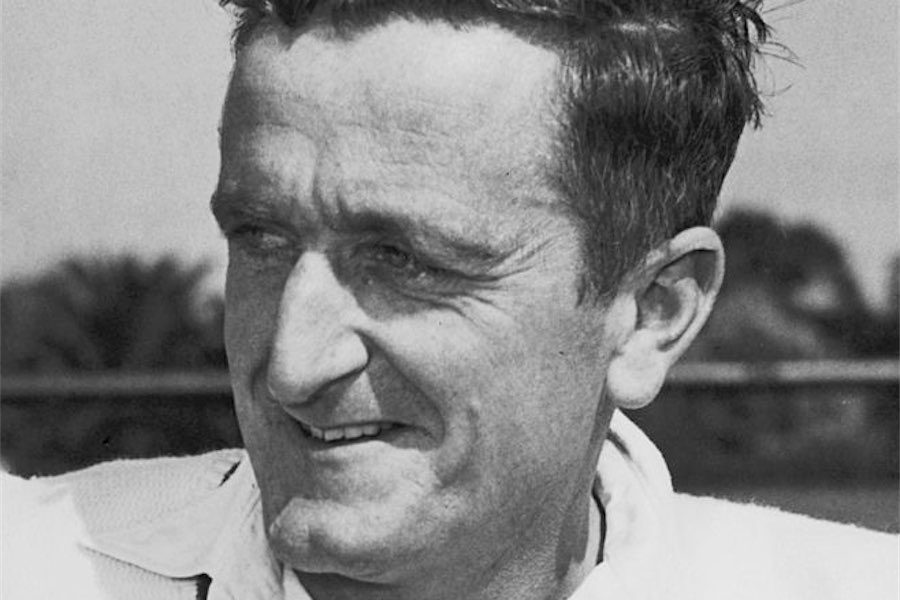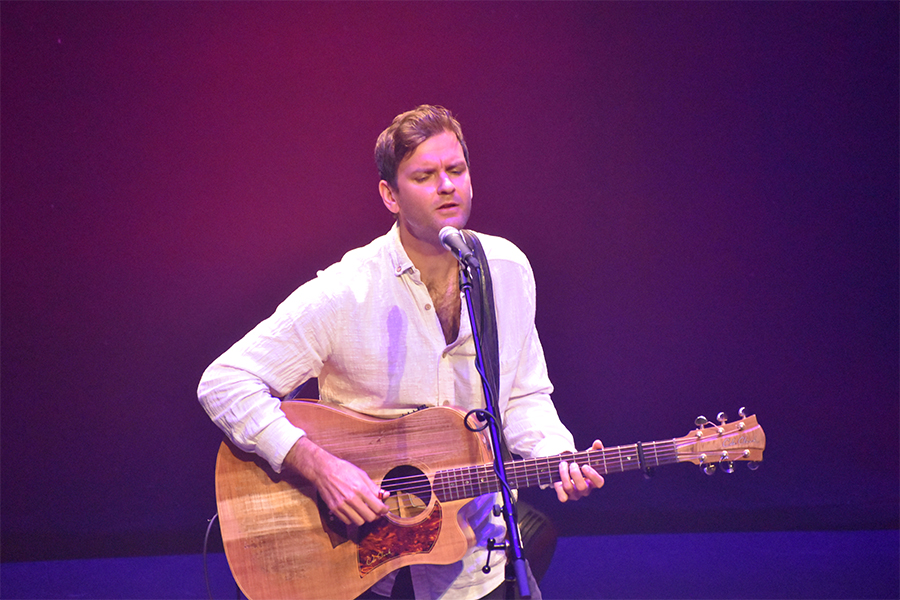
The colourful singers of the Canberra Choral Society, some dressed in their best 1920s outfits, opened the concert with a selection of songs from Ralph Vaughn Williams and Edward Bairstow under the direction of conductor and musician Peter Young. The concert included an afternoon tea and a raffle. Proceeds of the raffle were donated to drought relief for farmers in NSW.
After these light yet wistful songs, soprano Louise Page and pianist Phillipa Candy performed a mixture of English folk songs arranged by Percy Grainger. The six songs began with the mellow “Died for Love”, which was a sensitive portrayal of a simple tune that repeated over and over. The much more theatrical “The Sprig of Thyme” followed. Page’s subtle and sensitive voice filled the space with an old-time music hall feeling.
These arrangements are songs of another time and they take a listener back to a period where expressions of beauty and simple things were to be celebrated. In the songs “Willow, Willow” and the others that followed, Page’s voice fitted seamlessly with these arrangements and she was accompanied nicely on piano by Candy. They made the songs sound like the voice of the ’20s was back again.
Another of Grainger’s lively adaptations of the children’s march “Over the Hills and Far Away”, came after the interval. This time for two pianos played by Anthony Smith and Candy on side-by-side grand pianos up on the stage. It rollicked along with its up and down flowing tune much to the enjoyment of the audience.
More Vaughn Williams followed from the chorus and baritone Colin Milner with the songs “The Turtle Dove” and “Ca’ the yowes”, which is a Scottish folk song. These sombre songs with their noticeable English sound came across as haunting melodies through the deep rich voice of the baritone. Combined with the high voices of the chorus they offered an experience of majesty through a plaintive distance.
Smith on piano then played three lively tunes by Percy Grainger, Constant Lambert and Billy Mayer. Grainger’s “Country Gardens” was as fresh and lively as it was exactly 100-years ago when he arranged this English folk tune. Another Grainger work followed for chorus and piano with “I’m Seventeen come Sunday”.
To end the concert the inventive and vibrant composition “The Rio Grande” by Constant Lambert. It was arranged for soprano, two pianos, chorus and percussion, which were played by James Snedden, Océane Tinarran, Kate Maskell and as principle Veronica Bailey.
This eclectic work in a symphonic jazz style pumped up the volume and pace of the concert. It swayed, rocked, got cinematic, was Gershwin-like and boomed with volume; at times scaring some in the audience. It became sad and reflective when Page sang her part and it ended with a quirky tap on a woodblock and one note on a piano. The packed Albert Hall audience got to experience a rare concert of songs and sounds of the roaring 1920s in England.
Who can be trusted?
In a world of spin and confusion, there’s never been a more important time to support independent journalism in Canberra.
If you trust our work online and want to enforce the power of independent voices, I invite you to make a small contribution.
Every dollar of support is invested back into our journalism to help keep citynews.com.au strong and free.
Thank you,
Ian Meikle, editor




Leave a Reply